Have you ever wondered how you would modify the executable (.exe) files in your Windows operating system so as to customize it the way you want? Or have you ever wanted to change the icon of an executable file, so that it could look good?
If your answer is yes, then we have a special utility for you, called Resource Hacker, which can help you rename, modify, view, add or delete the contents of an executable and a resource file. And what’s more, it is available free of cost.
How to use Resource Hacker
Do note that this tutorial is meant for advanced users only. Here are the steps which you can follow to modify your executable or resources file as per your need. But before you start, do create a system restore point first:
1. First you need to install Resource Hacker on your 32-bit Windows operating system. If you haven’t got it, you can get it here free of cost.
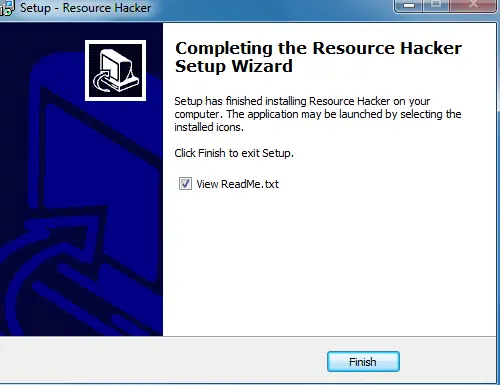
2. Once you have installed it, right-click on the file you want to modify and select Open using Resource Hacker.
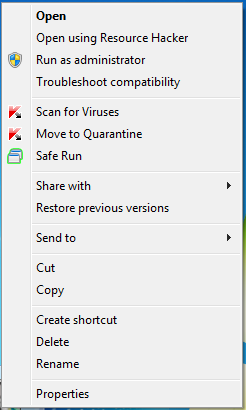
3. A window will open up which will display the contents such as Icon, String Table, RCData, Icon Group, Version Info, etc. of the file that you want to modify.
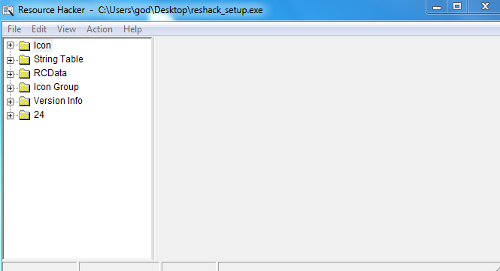
4. Now you can modify anything (actual executable contents excluded) you want. For example, let us suppose that you want to modify the icon of your executable or resources file. To do that, expand the icon tab and keep on expanding till you see the icon in the right side of the Resource Hacker window.
5. Select that icon file and click on the Action tab. Here you can see the various actions which you can perform with the selected file.
6. Click on Replace Icon. A new window will open up. Now browse to the location of the .ico (icon) file that you want to use.
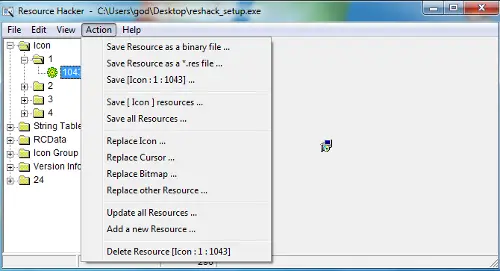
7. Now select that file and click on Replace.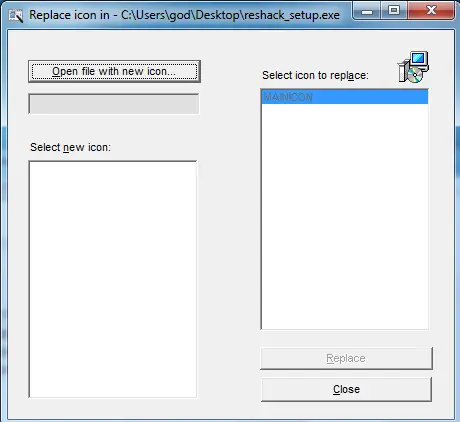
8. You have successfully replaced the icon of your .exe file. Save the file to the desired location.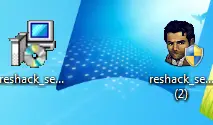
Take utmost care while modifying the contents of an executable or a resources file as both of these contain vital information.
If things go wrong, run System Restore or System File Checker to restore the system files.
Have a look at Redwood Resource Extractor too!
or you could use 7-zip
When I’m trying to save, it says – cannot rename original file, saving canceled.
Is this maybe one of these programs with locked icon? (BatteryAlarm.exe – freeware)
Any advice?